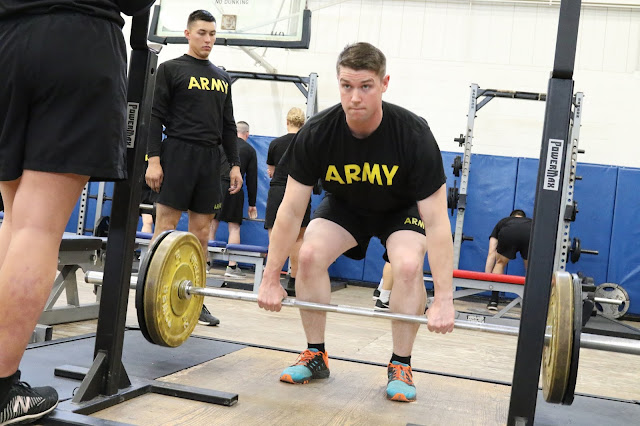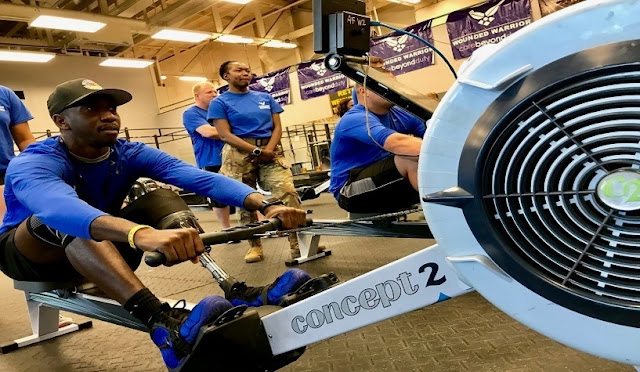75th Ranger Regiment teaches physical training course with ‘Big Red One’
Story by Sgt. Elizabeth Jones
19th Public Affairs Detachment
The class was led by Nicholas O'Brien, who is the Human Performance Program coordinator for the 75th Ranger Regt.
"The goal of the course is to train Soldiers how to optimize their physical performance, reduce injuries, plan for and maintain proper nutrition, and to learn what effective return to duty after injury looks like," O'Brien said.
The Human Performance Course is part of the Human Performance Program that provides a full staff of strength coaches, mental performance coaches, dietitians and athletic trainers within the 75th Ranger Regt.
"Mission and combat readiness is improved through education," O'Brien said. "There is a lot of research to show that reduction of injury and improvement of performance is about the educational process, not just the nuts and bolts of the coaching.
"It's about knowing and understanding what needs to be done and being instructed on how to execute that with individual- or group-level training," O'Brien added.
The class was geared toward senior enlisted and junior officers to maximixe its influence. Leaders can then disseminate the information and ensure this type of training is carried out within the ranks.
Second Lt. Joshua Ryan, assistant operations officer of the 299th Brigade Support Battalion, 2nd Brigade Combat Team, 1st Inf. Div., also known as the “Dagger Lifeline,” said he took the class to better himself and to collect the tools offered by the course to share with his unit.
"The callisthenic workouts from the class are something we can take to the field,” Ryan said. "We can make the kettlebells a part of our load plan on the vehicles, tie them down and take them to the field and do a physical training session out there."
Ryan found the class was beneficial in reinforcing and correcting proper form for each exercise. He noted better form when bench-pressing, for example, then carries over to other exercises.
"Being lethal, being fit is what we do as service members," Ryan said. "It doesn't matter what job you're doing in the military, you need to be able to perform the exercises in the ACFT and in the field – at your job – and that is why this knowledge and experience is important for all Soldiers."




Comments
Post a Comment